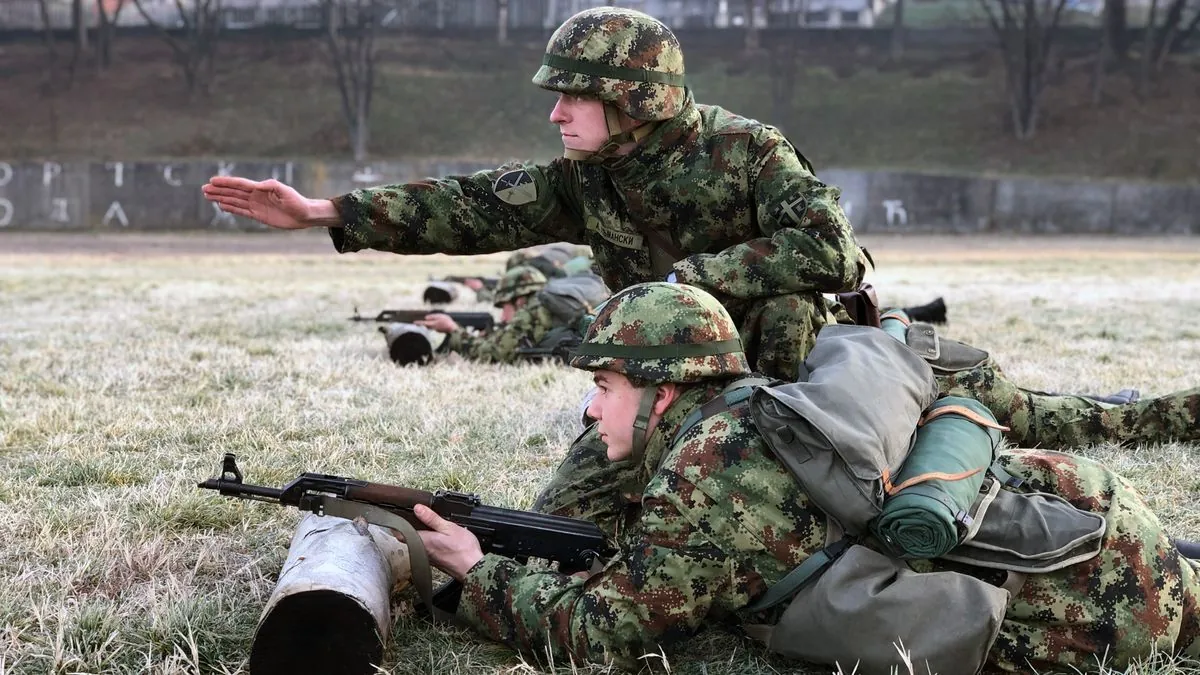In a significant shift in defense policy, the Serbian government has approved the reinstatement of mandatory military service, a practice that was discontinued 14 years ago. This decision, announced on September 20, 2024, marks a notable change in the country's approach to national security and defense readiness.
President Aleksandar Vucic commended the decision, viewing it as a crucial step towards bolstering Serbia's defense capabilities. The new conscription model outlines a 75-day service period for men, comprising 60 days of training and 15 days of exercises. For women, participation will remain voluntary.
This move comes as part of Serbia's ongoing efforts to modernize and strengthen its military. The country, which gained independence in 2006 following the dissolution of Yugoslavia, has been actively working to enhance its defense capabilities. Serbia's armed forces, fully professionalized since 2011, have faced challenges related to funding and equipment.
The reintroduction of conscription has sparked debate among military experts. Critics argue that the short service duration may not significantly contribute to the nation's defense capabilities and could prove costly. However, supporters see it as a necessary step in light of regional developments.
Serbia's decision mirrors a similar move by its neighbor, Croatia, a NATO member. Croatia plans to reimplement compulsory conscription from January 1, 2025, after suspending it in 2008. This parallel action has led some observers to speculate about a potential arms race in the Balkan region.
Despite these developments, Serbia maintains its stance of military neutrality. The country has been part of NATO's Partnership for Peace programme since 2006 and signed the Individual Partnership Action Plan in 2015, representing the highest level of cooperation for non-NATO aspirants.
In a move signaling diversification of its military suppliers, Serbia recently signed an agreement with France's Dassault Aviation for 12 new Rafale fighter jets. This purchase marks a shift from Serbia's traditional reliance on Russian military equipment. Interestingly, Croatia has also acquired 12 Rafale jets, with six already delivered.
Serbia's defense strategy emphasizes regional cooperation and participation in international peacekeeping missions. The country has been contributing to UN peacekeeping efforts since 2002, showcasing its commitment to global security initiatives.
The reintroduction of conscription and recent military acquisitions reflect Serbia's broader efforts to modernize its armed forces. With a defense budget of approximately 2% of its GDP in recent years, the country continues to balance its military needs with economic considerations.
As Serbia, an EU candidate since 2012, navigates its path in the complex Balkan geopolitical landscape, the revival of mandatory military service represents a significant step in its evolving defense policy. The coming years will likely reveal the full impact of this decision on Serbia's military capabilities and regional dynamics.
